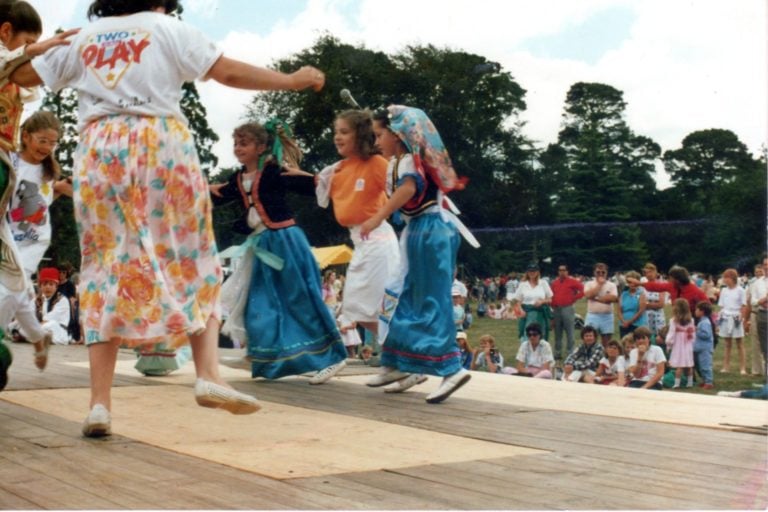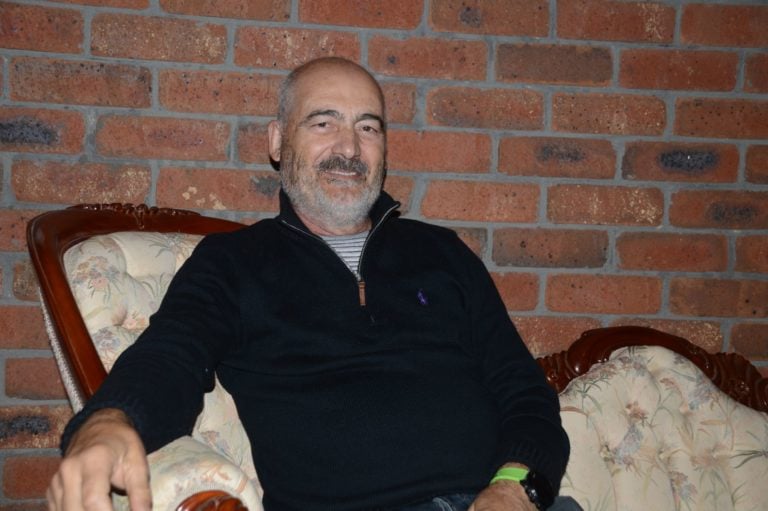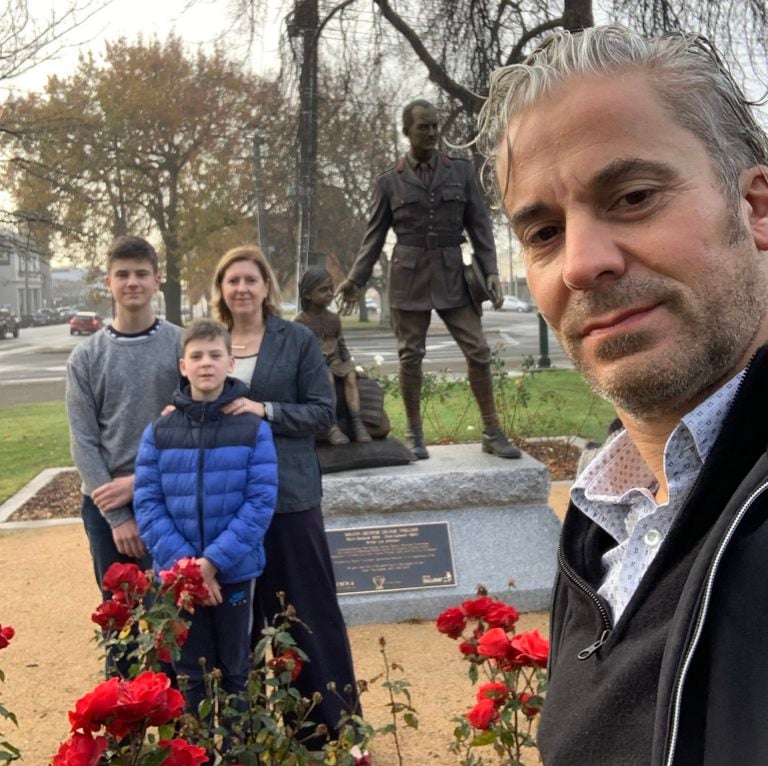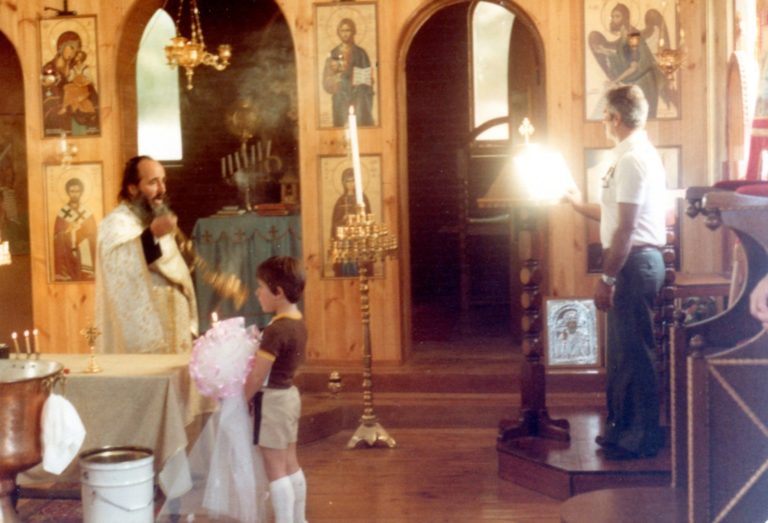Ballarat is regional Victorian city that in its heyday was known the world over thanks to its fabulous gold deposits. Greeks were first drawn to Ballarat during the gold rush of the 1850s.
Many of that generation left, and the next influx was to come 100 years later, and many of that generation stayed on. The 2016 census listed 518 Greeks living in Ballarat, one of 99 communities listed and the 13th largest community in the city.
It is one of the few ethnic communities in the city to boast of its own hall and church, which is dedicated to St Nicholas. Although the facilities are not as well used as they could be, they represent the combined effort of the community to get it built for future generations.
The early days
One of the oldest members of the community who played a key role in buying the church and setting up the hall is Vasilis and his wife, Paraskevi, Soufis.
Mr Soufis, a twinkle-eyed 90 year old came to Ballarat literally “straight off the boat” in 1955. His cousins from Kandila in Aitolo-Acarnania had come before the war to establish a restaurant in Ballarat.
He worked for his cousins and also as an upholsterer for a Ford factory until it moved to Melbourne. Over that time he saved enough to buy a fish and chips shop two years later.
“I had a problem with the language but the people were very kind to me.
“When I opened the shop I brought over my wife (in 1959). I made made a lot of friends with the Australians who were people with a lot of filotimo (honourable). I am known here,” he said.
“I raised my children, they worked in the shop, learnt Greek, married and I helped them with their lives,” Mr Soufis told Neos Kosmos. He also brought to Australia his two brothers and their families.
“We found our roots here. People from Melbourne are surprised we are still here and I say to them: ‘If you grow a tree, watch it grow, you cannot just uproot it.'”
In those days there were about 60 Greek families in Ballarat. There was no church or community centre and the men would meet locally for a coffee and to play cards.
By the early 1970s, the community realised the need for a church and community centre, and thus began the drive to raise money through dances and donations. The community bought a small Methodist church building on Humffray Street.
“I helped with the plans and kept an eye on the money raised. We bought the church, extended it and built the hall and we did not owe money to anyone while were doing it,” Mr Soufis said with pride.
Angelos Christofi came to Ballarat from Cyprus in 1971, and he recalled that Greek lessons were held at a local school before the church was bought.
“Around 72 men met and organised to buy the church. The community really came together to buy the church. We (his wife, Spyrithoula, who came in 1974) were the second couple to be married at St Nicholas,” he said.
READ MORE: Oakleigh is among the areas where the owners just won’t sell
Giorgos Grinos came to Ballarat in 1975, when he was 29, to work with his brother in his fish and chip shop in upper Sturt Street. He witnessed and was part of the community’s efforts to buy and develop the church and hall.
“The community effort was huge. We worked for each other then. The women formed their own association and organised raffles, social events and fundraising meetings,” Mr Grinos said.
“We sold tickets at our shops and we were so busy promoting it that the Aussies would say: ‘Are we building your church?’
“In the early days, before we bought the church building, we would use Catholic churches to worship or travel to Geelong.”
The efforts to buy the church, renovate it and build the hall gave the community a focal point. The children growing up in the 70s through to after the turns of the millennium had a Greek school and grew up with Greek culture, a central part of their lives in Ballarat.
Moving away
But many who grew up in Ballarat have been pulled to the jobs and opportunities of Melbourne and have taken their children with them. Ballarat’s industrial heart has been eroded over the years and it has affected the life of the Greek community in the city.
“The funny things is that if you ask the cousins and uncles who grew up here and who now live in Melbourne – they all say they want to come back because there is better lifestyle here in Ballarat,” said Andrew Grinos, president of Ballarat’s Greek community and the nephew of Giorgos.
“We were really close in those days, more like family. We made the effort to hold on to our culture and language. The Italian community (which is larger) were not as close because they could attend the Catholic churches that were already there. We Greeks had to work hard to do everything.
“We are slowly losing that now and are being absorbed into the community.”
Yet Greeks have been coming from Melbourne to settle in the Ballarat drawn by the city’s good schools, medical facilities and amenities that make it right for young families.
Jimmy Pasakos, a lecturer at Federation University, came from Melbourne 15 years ago.
“I grew up in South Melbourne. Got to an age where I wanted a life change so I did a post graduate diploma in education. I received a placement first in Keilor and Footscray and then put my hand up to teach in a regional school.
“I got a three-week posting in Ballarat and I enjoyed it. It was good to be out of the city. My partner was pregnant and then I got a full time contract with Ballarat High and so we left Melbourne,” Mr Pasakos said.
He did not know anyone but over time he has made strong friendships.
READ MORE: Greece’s refugee helper George Treloar honoured in Ballarat
“I did not meet many Greeks until I joined the local football team Red Devils and that is how I made some connections with the community,” he said.
Over the years he met other Greeks. During the city’s annual multicultural Harmony Festival, he would go to services at St Nicholas and goes to the New Year celebrations at the hall.
“The Greek school closed about four years ago because the numbers were down and my boys, who are 14 and 11 years old, do not really speak Greek. Melbourne needs to lead on this and put some Greek events in the city. We could also do with a priest coming more regularly to Ballarat.
“Some years ago, the Art Gallery of Ballarat hosted a big iconography exhibition and it brought some Greek culture here. It would be good for more such events to take place here so that the Greeks who are here can connect with their culture, and the people of Ballarat can learn more about our culture,” Mr Pasakos said.
George Triantafyllopoulos, who is originally from Melbourne and has lived in Ballarat since 2009, says there is a strong need to nurture the Greek community in the city in order to promote Greek culture among the younger generations.
“The nearest Greek school is in Footscray which is too far. It is sad that this is the case.
“Ballarat is a beautiful city, the people are nice and when I take visitors around they always notice that there lots of parks and gardens,” he said.
READ MORE: From Ballarat to Mudros Bay
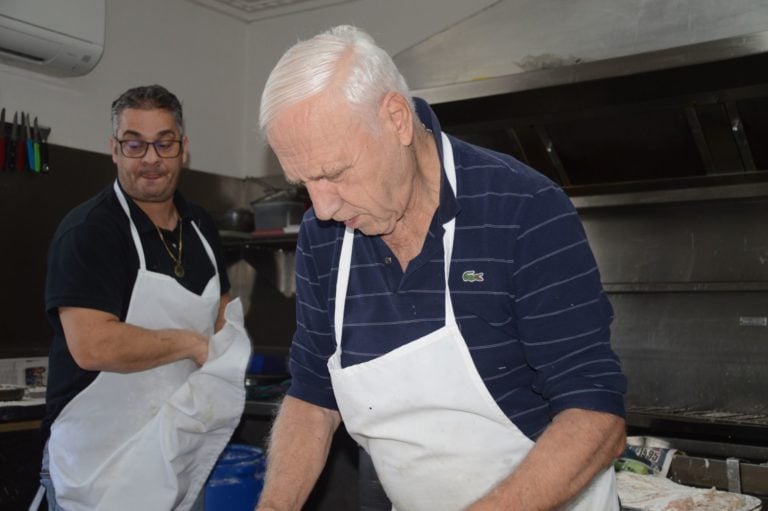
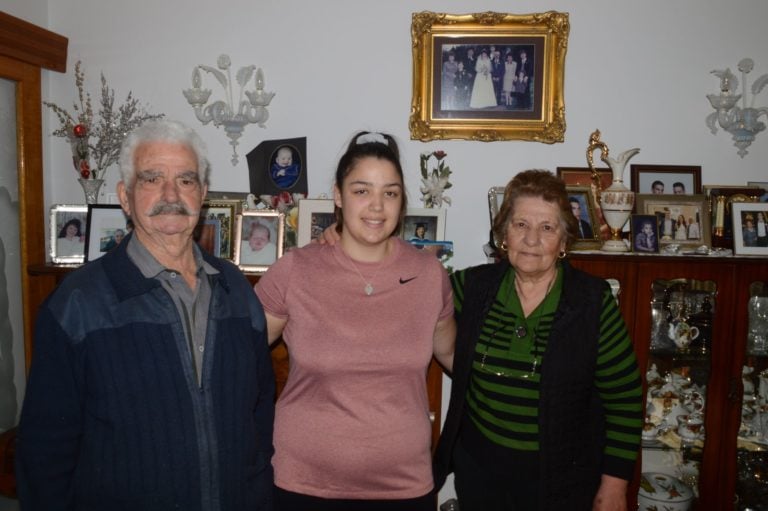
Another second-generation Greek, Christina Sofis, a teacher, came to for the South Australian Riverland region in 1995.
“Ballarat is a lovely regional city with lots of facilities for a young family. When I came it was a good time for someone new to connect and I could hold on to my traditions despite having married a non-Greek. My children could experience some of their history here. My daughters, now 17 and 19, went to 10 years of Greek school,” Ms Sofis said.
Mr Christofi’s younger sister, Litsa Chung, came later to Ballarat than her three brothers. For many years Ms Chung was a leading figure in promoting multiculturalism in Ballarat and was working in the early years of the key multicultural organisation the Ballarat Regional Multicultural Council.
“I am passionate about multiculturalism and did a lot to get the concept into the schools here. Ballarat has changed for the better and people are more accepting of cultural difference, especially the young.
“The Greeks who came earlier had little education but they worked so hard that most of them did very well and built their own businesses.
“They are highly respected as a multicultural group in Ballarat,” said Ms Chung.
